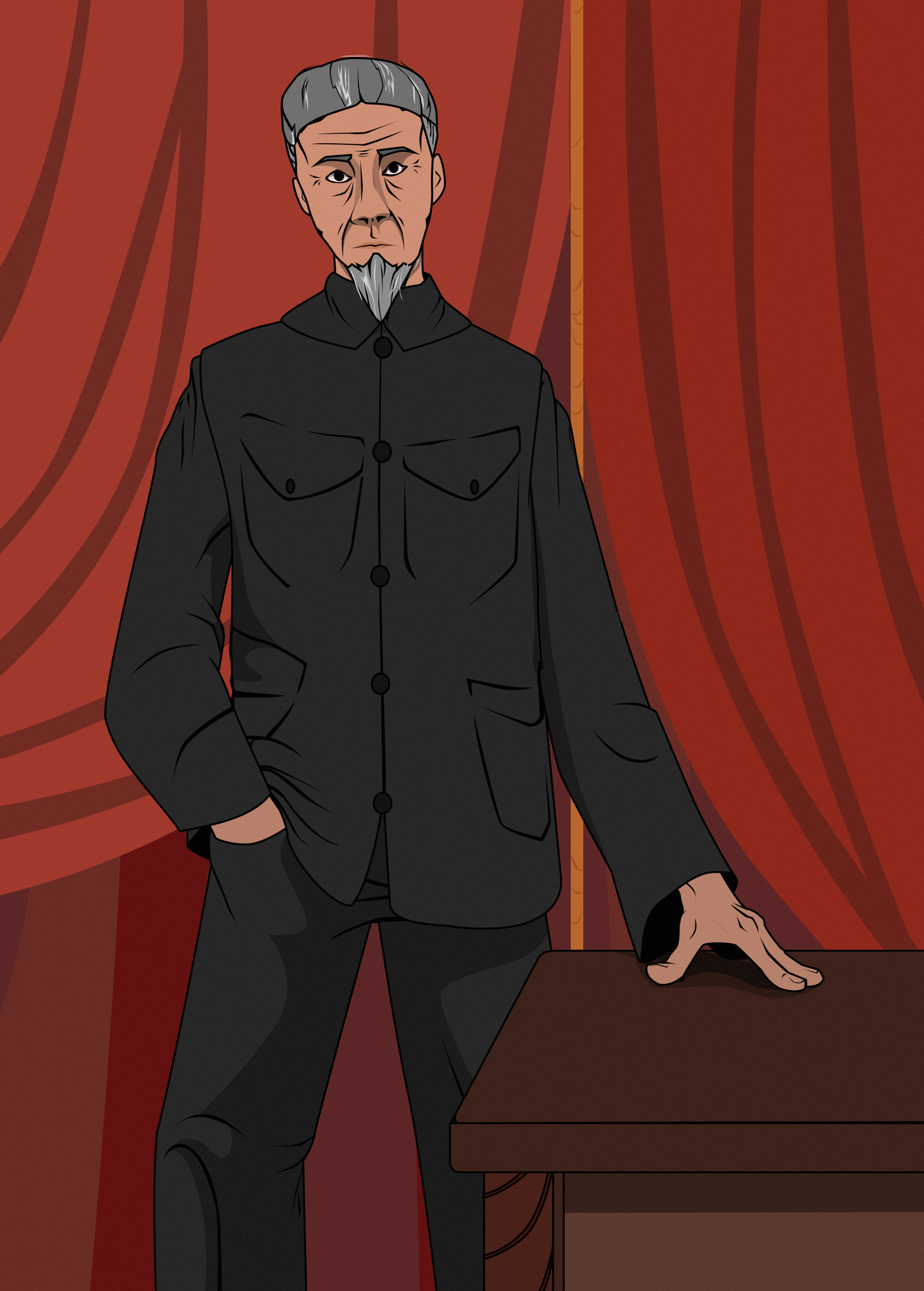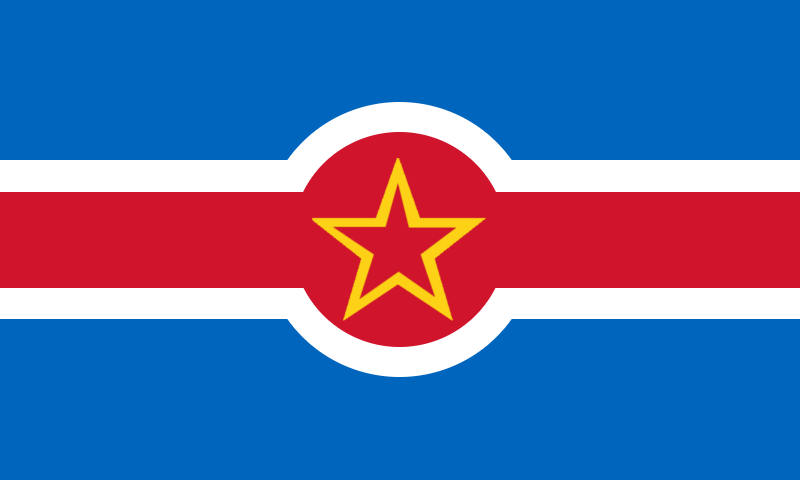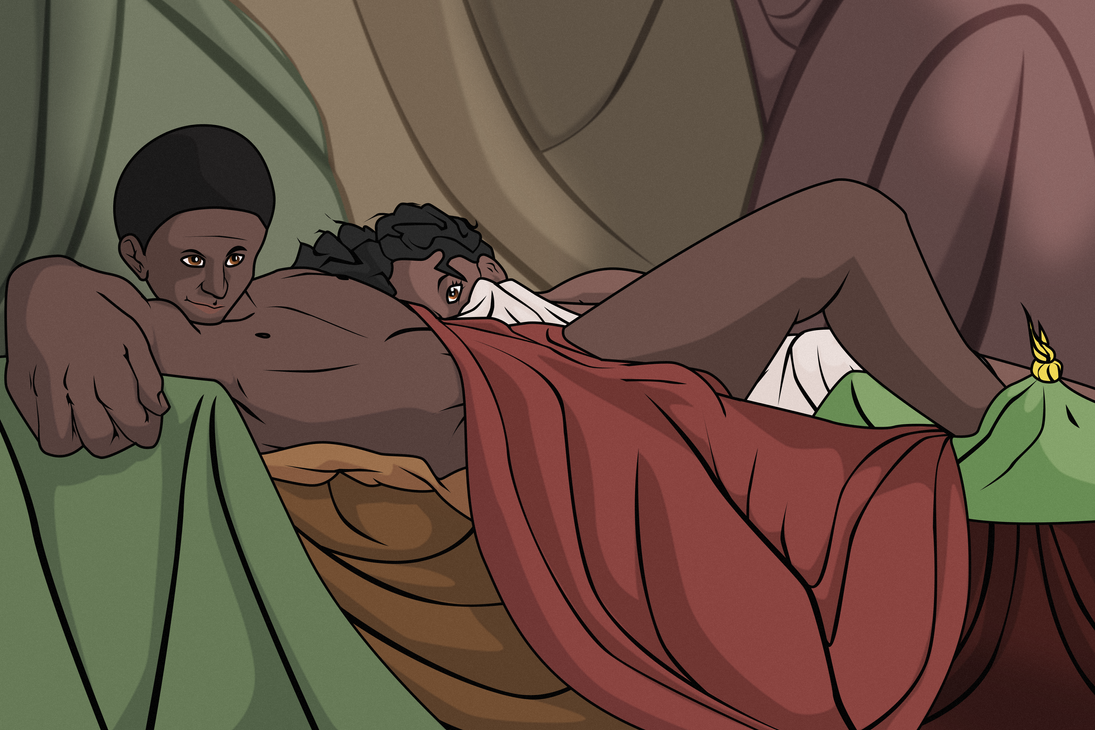Nation: The Emirate of Grozny
Flag: Location (on map):
Location (on map): History:
History:The Chechens have had a long history of conflict with the Russians, dating back to 1785, when the Chechens became antagonized by Russian activity in the region. Fighting would continue for centuries, with Russia formally annexing Chechen lands in 1862. However, the relationship between Russia and Chechnya was never a stable one, with a cycle of violence that continued long after the formal integration, with Chechens proclaiming their independence, and Russia responding with brutal force. The seemingly endless cycle would find one of its last rebirths in 1947, with the proclamation of the Caucasus Emirate, a state unifying Chechnya, Dagestan and Ingushetia into a singular state. The Caucasians had, however, underestimated the response of the new Tsar, and were almost effortlessly crushed by the forces of Alexandre. The Russians were determined to ensure that the Caucasus would no longer be a problem, and the Tsar ordered his soldiers to devastate the land.
Chechnya would remain a devastated wasteland even after the collapse of the Russian Empire. With the most powerful movement for unification absolutely wiped out by the Russians, the Caucasus fell into anarchy with the loss of Russian administration. Local warlords rose up to fill the power vacuum, and areas became divided amongst petty lords. Chechnya split among the states of Ichkeria, Grozny, and Khortagh.
Warlordism attracted the attention of Islamic revivalists to the south, mostly Arabs who saw the collapse of Russian presence in the Caucasus as an opportunity to strengthen the Muslim identity of the region after the centuries of Christian rule. In the decade of anarchy that would come, the Caucasus became a living hell, dominated by brutal warlords of not only Chechen, but Avar, Ingush, Georgian, Ossetian, Circassian, Russian, and Arab origins, carving out little plots of land, naming themselves Emir, Tsar, Sultan, President, Premier, and a variety of other titles as groups fought for dominance in the area.
Power shifted to asymmetrical divisions with the rise of the Arab warlord Abu Yahya Firadus ibn Sa'id, a self-proclaimed Sheikh and "Reviver of Islam". With rapid growth, including the annexation of the Ibn Sa'id's Sheikhdom soon dominated much of the Caucasus. That was , until the death of Ibn Sa'id, and the rise of his unprepared son, Yahya ibn Firadus as-Sa'idi. Ibn Firadus proved a poor leader, and the hegemony of his father's emirate collapsed immediately, paving the way for smaller states to arise and grow. One of these states was an alliance of warlords centered around a powerful ex-soldier from Grozny, one Tamerlan Umarov, who arose to break away from the Sa'idi influences, as other states in the Caucasus had began to do. Within 2 years, all lands south of Ibn Sa'id's Sheikhdom had broken away, and Ibn Firadus was desperate to regain them. Seeing Grozny as the first easy target, the Sa'idis sought to get rid of Tamerlan to weaken the state first. In 1959, Tamerlan Umarov was killed in an explosion that collapsed the home he had been invited into. Leaving the position of Emir to pass on to his son.
The so-called "Boy King" Ramzan Umarov, finds himself the leader of a tribal nation in the middle of a troubling period of chaos, as the brief moment of security in the Caucasus has ended, and the former king of beasts sets is eyes upon his nation. Only 15 years old, Ramzan will need to do everything in his power if he is to not only have Grozny survive, but fulfill his father's dream of a unified Chechnya and beyond.
Culture:- Terminology:Society and Ideas:Nokhchi - A Chechen
Nokhchallah - The Chechen way of life, an unwritten code of ethics that all Chechens are expected to live by. The Chechen code of honor implies moral and ethical behaviour, generosity and the will to safeguard the honor of women.
Naqshbandiyah and
Qadiriyah- The two largest Sufi orders among Chechens.
Lezgin - An Avar
Örsi - A Russian
Khiri - An Ossetian
Social Divisions:
Teip - Translates to 'clan', a teip is the most basic element of Chechen society. There are between 130 to 233 teips in Chechen society. Teips are lead by a council of elders elected by the male members of the clan. Teips are strictly patriarchial, women have no direct say and are always represented by male family members. In times of war, a teip will elect a warlord to represent them in the tribal army.
Söli Teipa - translates to 'impure clan', a teip founded by and primarily consisting of non-Chechens. As Chechen society uses the teip as its most basic unit, for ethnic minorities to have any participation in the nation, they must form their own teip. Due to clan intermarriage, the clans become quickly assimilated into the larger culture. Once a clan has significantly been assimilated, it will no longer be considered 'impure', and will be able to band with native teips into a tukhum.
Tukhum - Roughly equivalent to 'tribe', a tukhum is a collection of teipa
Kham - Translated as 'nation', refers to all ethnic Chechens collectively.
Nekye - One's nuclear family, defined by the male head of the home.
T'ema Sud - War Tribunal
Tariqah - A Sufi School
Titles:Emir - The Leader of the Emirate; Originally a military, title, the term has come to mean a supreme leader of the warlords (Byacha) in Chechnya.
Byacha - 'Commander', roughly a warlord elected by the teip to lead their militia
Voqqan - 'Elder', the leaders of a teip, elected by the men of the clan. (Plural: Bakiin)
Da - 'Father', Fathers have a kind of supreme importance in Chechen society, being essentially unquestioned authorities over their family. The wives and children of a man comprise his nekye.
Imam - A Muslim Cleric
Sheikh - Technically a word denoting a noble, among Chechens the term refers to a Sufi spiritual
leader. Sheikhs are fundamental to the Sufism popular among Chechens.
Murshid - A spiritual guide and teacher in Sufism
Murid - An Arabic term translating to 'commited one', a Murid is an initiate of a Sufi order and a student of a Murshid.
Phrases:Marsha Oylla - A Greeting; Translates as "Enter in Freedom"
- Society:Chechen society is noted for being tribal, and comparatively egalitarian compared to most of their neighbors. The Chechen's have a strong social organization, characterized by being divided into patriarchal tribes called teips, all considered to be equal to each other.

Most Chechens are Muslims. The overwhelming majority of Muslims in Chechnya belong to the Shafi'i Sunni school of thought. While most Chechens are standard Sunnis, Sufism is very strong in among Chechens, with roughly half of all men having some form of membership in a Tariqah. Islam has become more important in society following the fall of Russia, and the rapid increase of nationalism among Chechens and other peoples of the Caucasus. The radical movement of 'Islamic Revivalism' has sprung up in the Caucasus almost overnight, brought mostly by Arab warlords and spread rapidly among the disenchanted youth and men who saw their world fall apart after the Great War.
Characters:
Government:
Ramzan Umarov -
Emir of Grozny - Nicknamed 'The Boy King of Chechnya', Ramzan Umarov was thrust into power following the tragic death of his father two years prior. Umarov is only 15 years of age, with little knowledge of how he is to run the country against not only external enemies, but distrustful warlords who see him as unfit for leadership. Umarov has an almost obsessive interest in trains, and is often found playing with and building model locomotives in his spare time, which he has very little of.
Osman Masaev -
Grand Warlord - Osman Masaev is a veteran of the Caucasian Uprising in 1947, having fought against the Tsar's men as they destroyed the newly proclaimed Caucasus Emirate. An experienced soldier, Osman runs most of the military operations autonomously from Ramzan, due to the Emir's lack of experience.
Supian Inarkaevich - Grand Mufti of Grozny
Salikh Tsarnayev - Domestic Advisor
Elbek Magomedov - Head of the Treasury
Military:Alaudin Shervashidze - Head of the Grozny Air Force
Important Teip Warlords: - All are leaders of the forces opposing Ibn Sa'id's Sheikhdom
Abu Usamov
Medni Kadiev
Albek Korgay
Bashir Yandarbiyev
Temirbek Akhmadov
Dzhalal Sagaipov - Warlord tasked with the Invasion of Ichkeria
Mikhail 'Misha' Svyatoslavovich - A Russian Cossack turncoat who works with Osman Masaev against Russian forces. A leader against the Terek Cossacks and a convert to Sufi Islam and founder of the Mikhaili teip.
Civilians:Aysha Dratcheva - Secretary to Ramzan Umarov - A young woman working for Ramzan
Ishaq Mikhailov - Mikhail Svyatoslavovich's son, the first true member of the Mikhaili teip
Abu Alimsultanov - A local imam at a Grozny mosque
Bogdan Larionovich - A Russian businessman trying to rebuild his life after the collapse of Chechnya
Aslanbek Ryzaev - An angry young man who lost his mother and sister in the war; blames Russia and the west for the state of Chechnya, and increasingly feels drawn to Islamic Revivalism.
Qoqa Aslakhanova - A woman fleeing an abusive arranged marriage, living on the fringes of society.
Abdul-Hakim Anas - An Arab man who deserted the extremists of Ibn Sa'id's army. Hiding in Grozny under the pseudonym 'Omar Panova'
Kiril Islamov - A Chechen convert to Orthodox Christianity, facing social backlash for his decision.


 1x Thank
1x Thank










